You've mixed a lot of concepts, here is how it goes (my version):
Class is something that describes the objects that will be created in JVM in runtime (one object, many objects - it depends on your actual program - what does it do).
Here is an example of Class definition:
public class Person {
private String name;
private int age;
}
Its important to understand that this alone is not really an object, only a definition of class, its like saying: "In my program persons that I'll want to create will look like this (read will have name and age)".
Now in order to create objects (real people/persons) you should use the word "new" in Java (other languages may do it in a different way). What is real person? Jack, John, Alice - they're all persons and might be created in your program.
Every Object should have a reference somewhere in the project so that you could be able to work with it:
Person john = new Person(...); // I'll explain about ... in a minute
Person jack = new Person(...);
Person alice = new Person(...);
So for now, we have 1 class definition (class Person) and we can create 3 objects (instances) of this class. So far so good.
Now how Java should know that instance john actually has the name "John" and he is, say, 40? In other words how exactly do you instantiate the data fields of the object during the object creation? The truth is that Java doesn't know but it allows You to define this by means of declaring constructors - a special way to instruct Java how to create an instance of the class, so we alter the class definition:
public class Person {
private String name;
private int age;
public Person(String name, int age) {
this.name = name;
this.age = age;
}
}
Now when we have a constructor, we create the objects (real persons, again) like this:
Person john = new Person("John", 40);
Person jack = new Person("Jack", 30);
Person alice = new Person("Alice", 32);
If we won't supply correct parameters to the constructor (the first one should be string, the second one is an integer), then the code won't compile at all.
So typically we have one class definition and we can create many objects out of it.
Now its true is that in Java there are ways to define a class that in a way that won't allow the creation of more than one instance (this is called singleton) - but I think it will confuse you even more at this point, so for now if you haven't heard about these singletons - don't bother.
